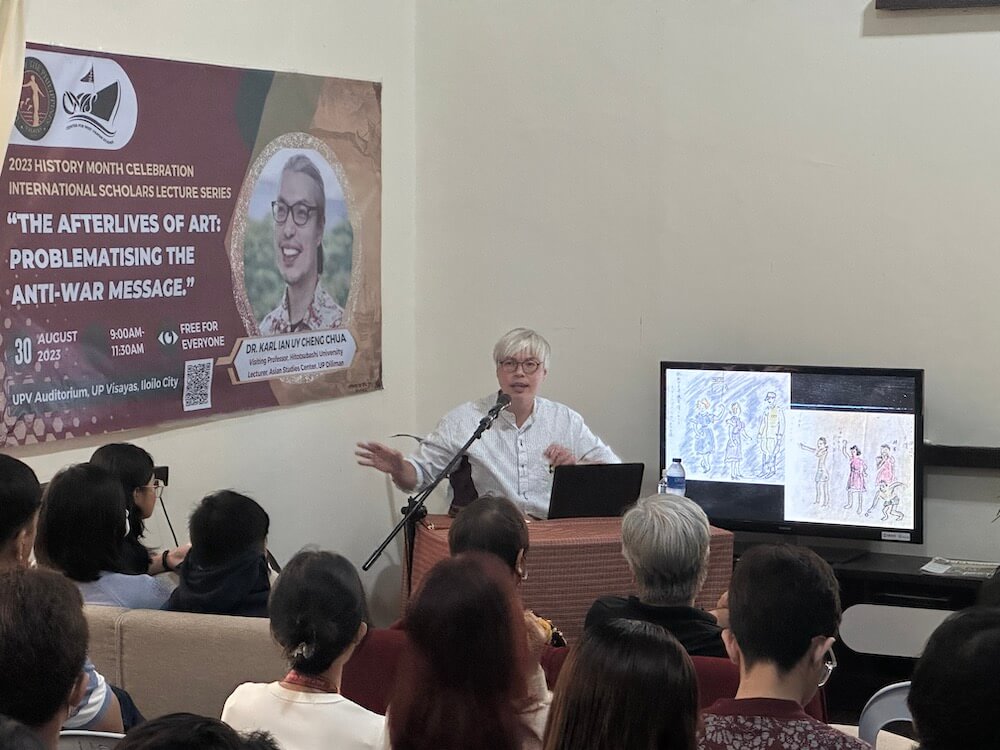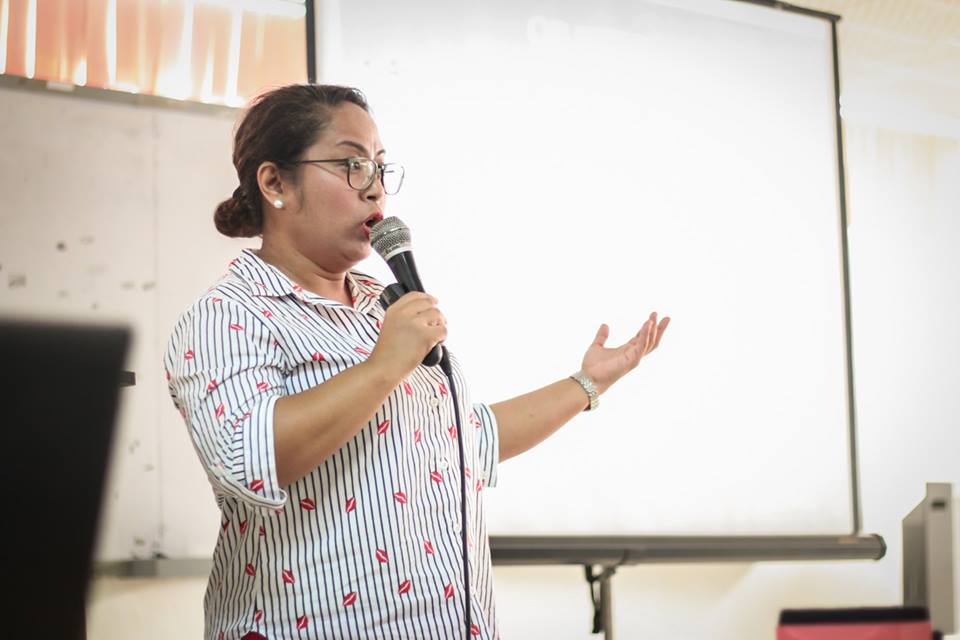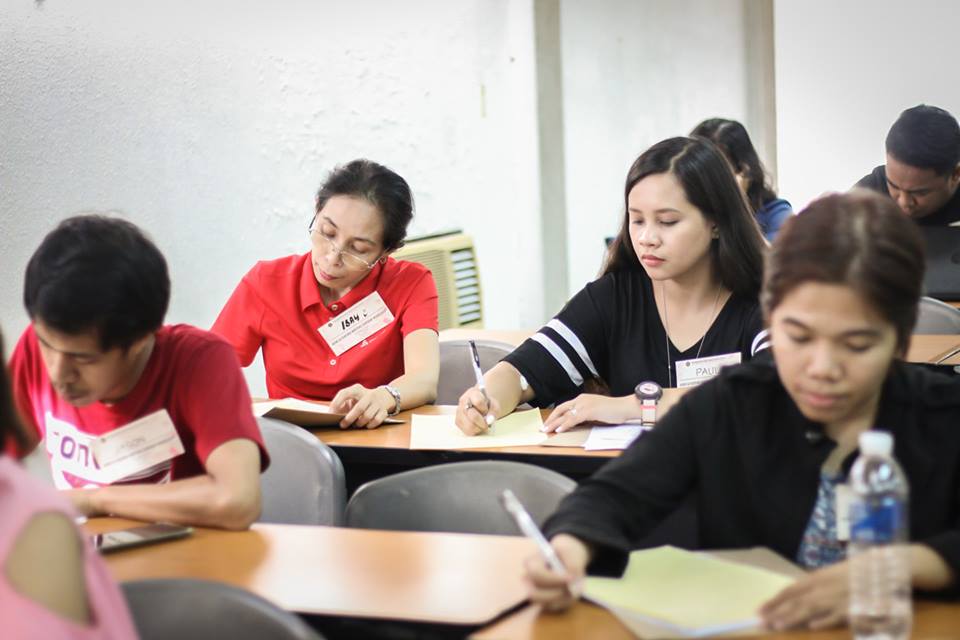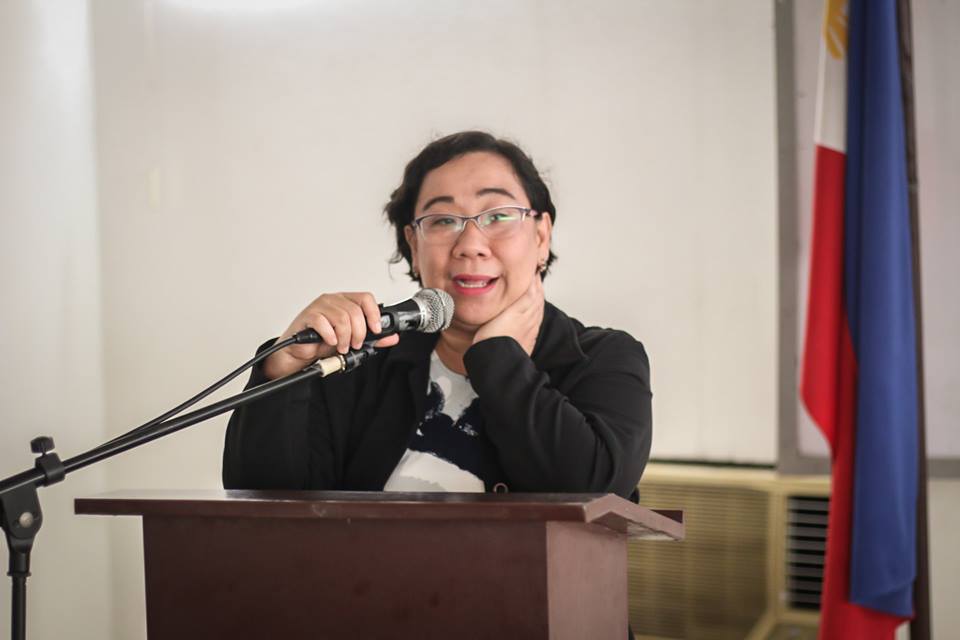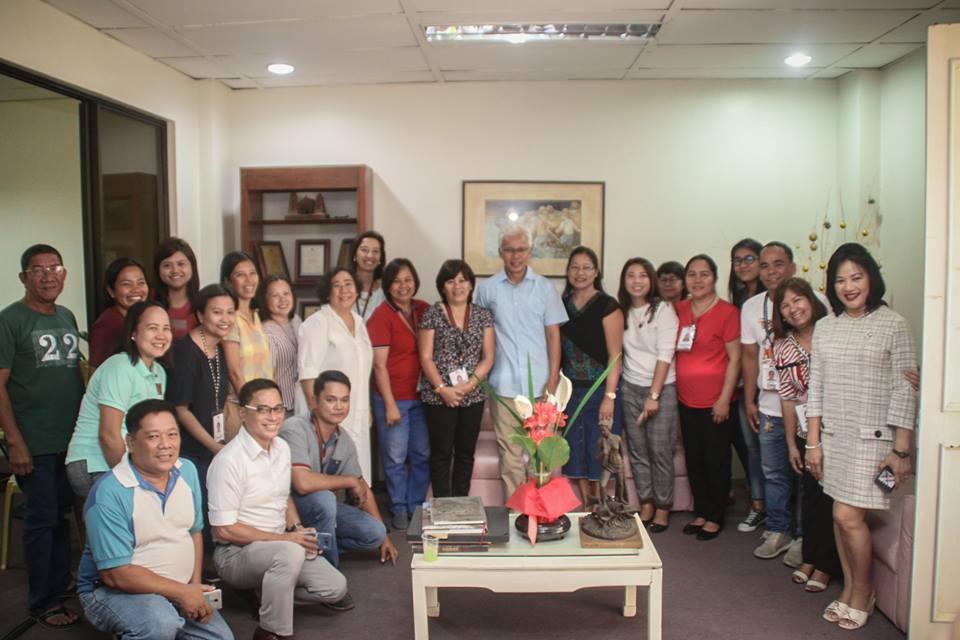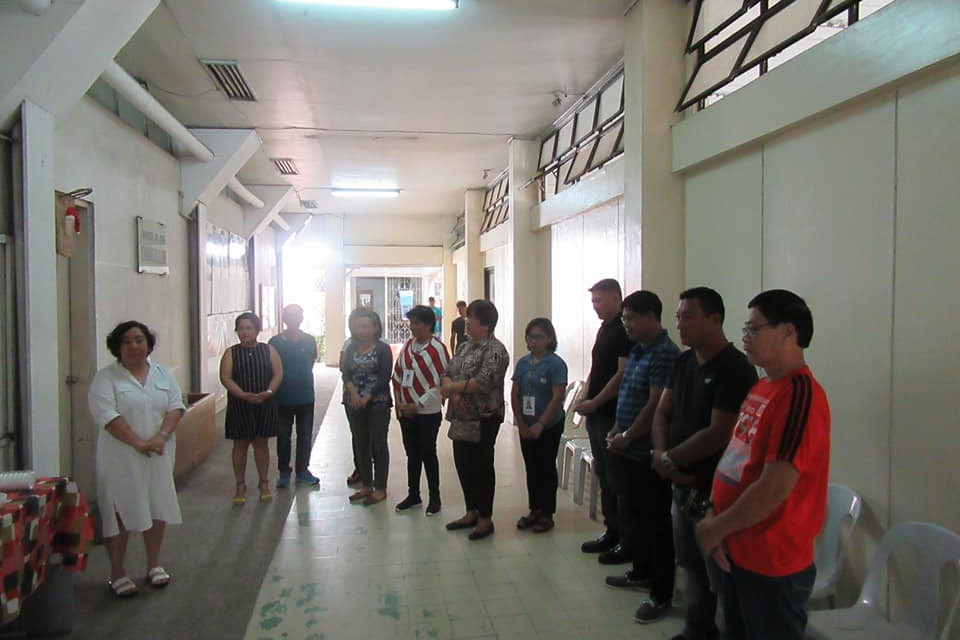In celebration of History Month, the Center for West Visayan Studies (CWVS) held the highly-anticipated lecture of Dr. Karl Ian Uy Cheng Chua titled “The Afterlives of Art: Problematising the Anti-War Message,” last 30th of August at the office of the CWVS, in the UPV Main Building, Iloilo City.
The History Month lecture was part of the Center’s International Scholars Lecture Series, which started last June with the lecture of Dr. Resto Cruz of the University of Edinburgh, Scotland, and followed by Mr. Adrian Alarilla of the University of Hawaii at Mānoa.
In the talk, Dr. Chua, a Visiting Professor at the Hitotsubashi University and Lecturer at the Asian Studies Center, UP Diliman, shared his research on the picture diaries or illustrating postcards (e-nikki) of Japanese soldiers and personnel who were stationed in the Philippines during the Second World War.
The lecture of Dr. Chua gained a full house, with participants coming all the way from the College of Arts and Sciences of the Central Philippine University (CPU); the College of Liberal Arts, Sciences, and Education of the University of San Agustin; students from the Iloilo Science and Technology University (ISAT-U); members of MAARAM (Mag-aaral na may Adbokasiya sa Pagtib-ung sang Kulturang Manggad) of the West Visayas State University (WVSU); UPV Kamaragtas and other UPV students. Also present in the lecture were retired UPV History faculty members, Prof. Melanie J. Padilla and Prof. Ma. Luisa E. Mabunay.
Dr. Chua delved into a critical reading of the visual art that accompanied the intimate letters sent by Japanese soldiers to their loved ones during the war – examining how its “afterlife” contributed to the reinforcement of the anti-war message of post-war Japan and its sense of victimhood nationalism that excluded the narratives of those formerly occupied. Further on, talking about positionality, Dr. Chua argues that those from the regions, such as the Western Visayas, ought to take advantage of their rootedness and familiarity with the local culture and language, as it becomes a means to uncover and convey alternative or marginal narratives that may offer a different and more nuanced view of our history.
Lastly, Dr. Chua emphasized the importance of moving beyond the “classical view of history” as derived solely from written records – exploring the richness of oral narratives and material culture such as paintings, postcards, illustrated letters, photographs, and everyday objects.
Shortly before ending his lecture, Dr. Chua reminded the listeners that, “History is about lived spaces, and the lived space was not just about [the] text. The lived space can be about art; the lived space can be about materials; the lived space can be anything and everything that was there.”
The Q&A portion after the talk generated a lively engagement among the faculty and student participants, as Dr. Chua offered insightful comments to questions and issues on methodologies in Historical research, Philippine Historiography, lived experiences, the politics of remembering, and the contextualization of primary sources.
Among the participants, Mr. Alfie Anthony Neodama, a faculty of ISAT-U, related his research on the proliferation of the use of explosives in fishing in Negros shortly after the end of World War II, a topic which progressed towards the writing of history from the vantage point of the poor and marginalized and the issue with elite history.
Meanwhile, Ms. Thania Margarrette Coronica, a faculty from the History cluster of UPV, raised the question on the present scene of the educational sector in Japan in relation to the prevailing anti-war message and how narratives of suffering from the formerly occupied nations are communicated to Japanese children in the contemporary times. Among one of the students who engaged in the Q&A with the speaker, Frederick Evans Jardenil, a Public Administration student from CPU, recounts the problems faced in dealing with class interests in primary sources – to which Dr. Chua offered the advice of critically reading these dominant sources beyond their obvious biases and contextualizing them in their larger history and social milieu.
The Center aims to hold more events akin to their International Scholar Lecture Series, which has elicited the excitement of numerous researchers, faculty, and students in Iloilo by providing an avenue for meaningful discourse in the field of national and local history.

